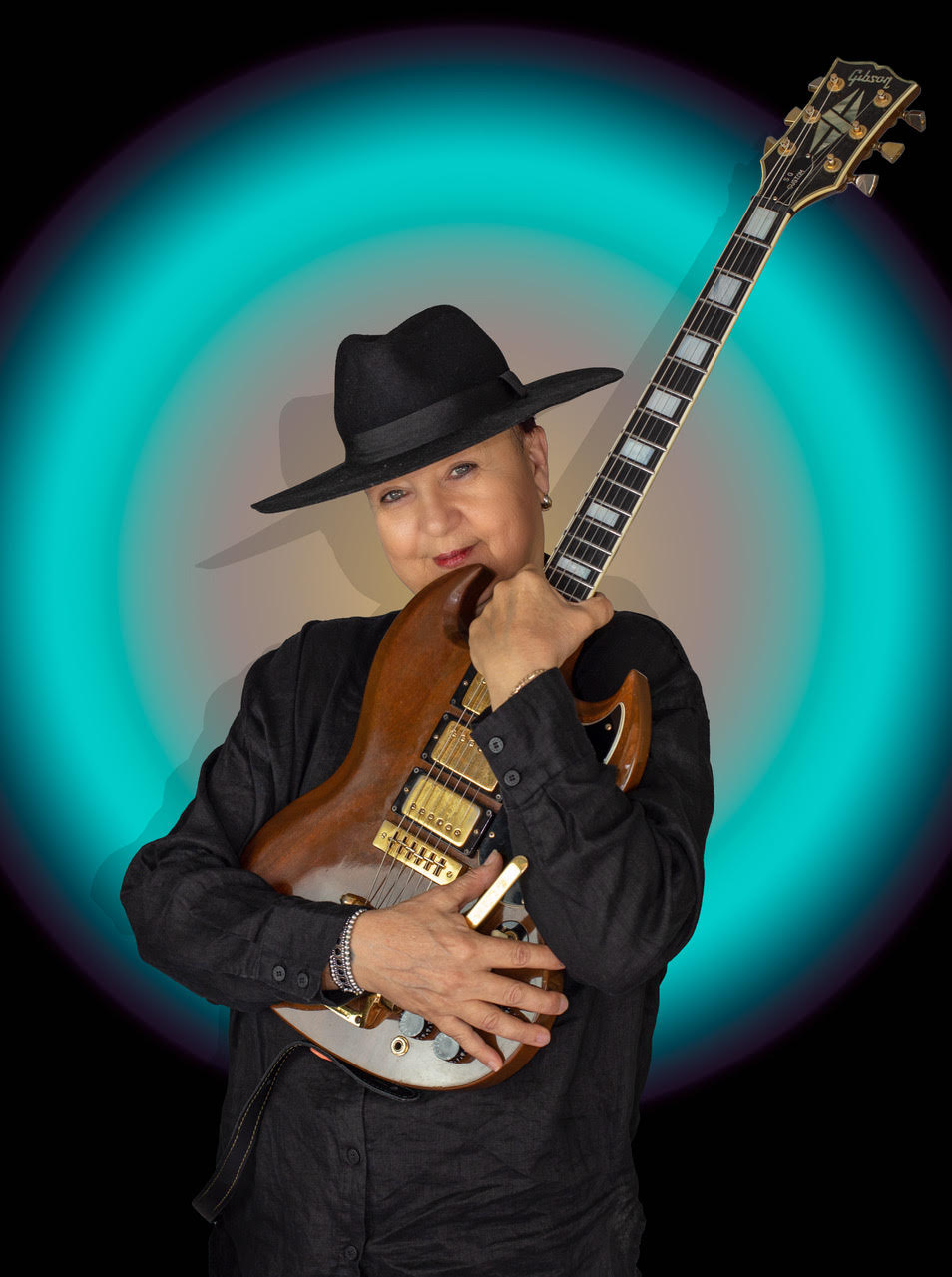When did your musical taste and performances begin to gravitate towards the blues?
My release of an 18-track compilation album ‘Love Loss & Mental Health’ in 2018 marked the end of a significant period for me. Specifically, I felt that style of music seemed unnecessarily complicated which detracted from the real essence of what I was trying to express. I began digging deep within my soul and connected with my Greek roots! This included frequent travel to Greece, where I began to jam and perform with some national and international touring Greek Rembetika and Smyrnaika (pre-1930) musicians who introduced me to some exotic scales that were not too far removed from the blues.
(and related to that):
As your early work was in the rock arena, was there always an underlying attraction to the blues genre or did that come later?
I actually started out playing blues rock progressions in clubs as a teenager, and before that folk or roots progressions in a community bush band. That then developed to listening to a vast range of rock from Bowie, Lou Reed and Elvis to Billy Holliday, Ella Ftzgerald and Dinah Washington. I’ve always had a vast eclectic taste in music explorations but was always drawn to a pure connection with the blues.
How, if at all, has your interest in the blues been shaped by your Greek heritage?
The exotic scales and compound time in Greek music were my first experience of music within my mother’s womb and I believe have brought me back to the blues and shuffle feels. The wailing vocal Greek Rebetika improvisation also connect me to the blues. My mother was from the Dodecanese Islands and my father from the Peloponnese. Particularly the way a melody is expressed on the violin from the Greek isles and on a clarinet from the mainland strongly connect me with pre-WW blues music.
You’ve said that Memphis Minnie has been a big influence – in what ways?
I love Memphis Minnie for being a brave woman who played the first blues electric guitar to be heard over rowdy crowds. She also wrote and sang, in a very pure and simple honest way with halftime upbeat shuffles, and stories I resonate with (such as depression, domestic violence, suicide, climate change, and oppression). I think it’s just genius, and she influenced a world of blues and rock guitarists from Rosetta Tharpe to Chuck Berry.
Is there anything you want to say about the role and status of women in the blues genre more generally?
Both my mother and grandmother are Greek Islanders who came to Australia in the mid 50’s from a Matriarchal part of Greece -the Dodecanese on the Aegean Sea… Minnie was born around my Grandma ‘Kaliopi’s’ time, and Big Mamma Thornton, around my Mum ‘Fani’s time –
I’ve always been very inspired by strong women! As attested to not only by my influences and lineage but by “the company I keep.”
Minnie played a significant role in exposing and protesting against the patriarchal domination and subordination of women. This resonates with me to this day… , Some 50 years before the feminist movement of the 70’s, Memphis Minnie not only sang about the impoverished slavery of Black African Americans but also about domestic violence, corruption in the law, sexual liberation, forbidden sexual relationships – including same sex partners – depression and suicide, unprotected sex and backyard terminations. When we reflect on this we have to question just how much has changed, which increases our motivation to join the HERSTORY choir.
